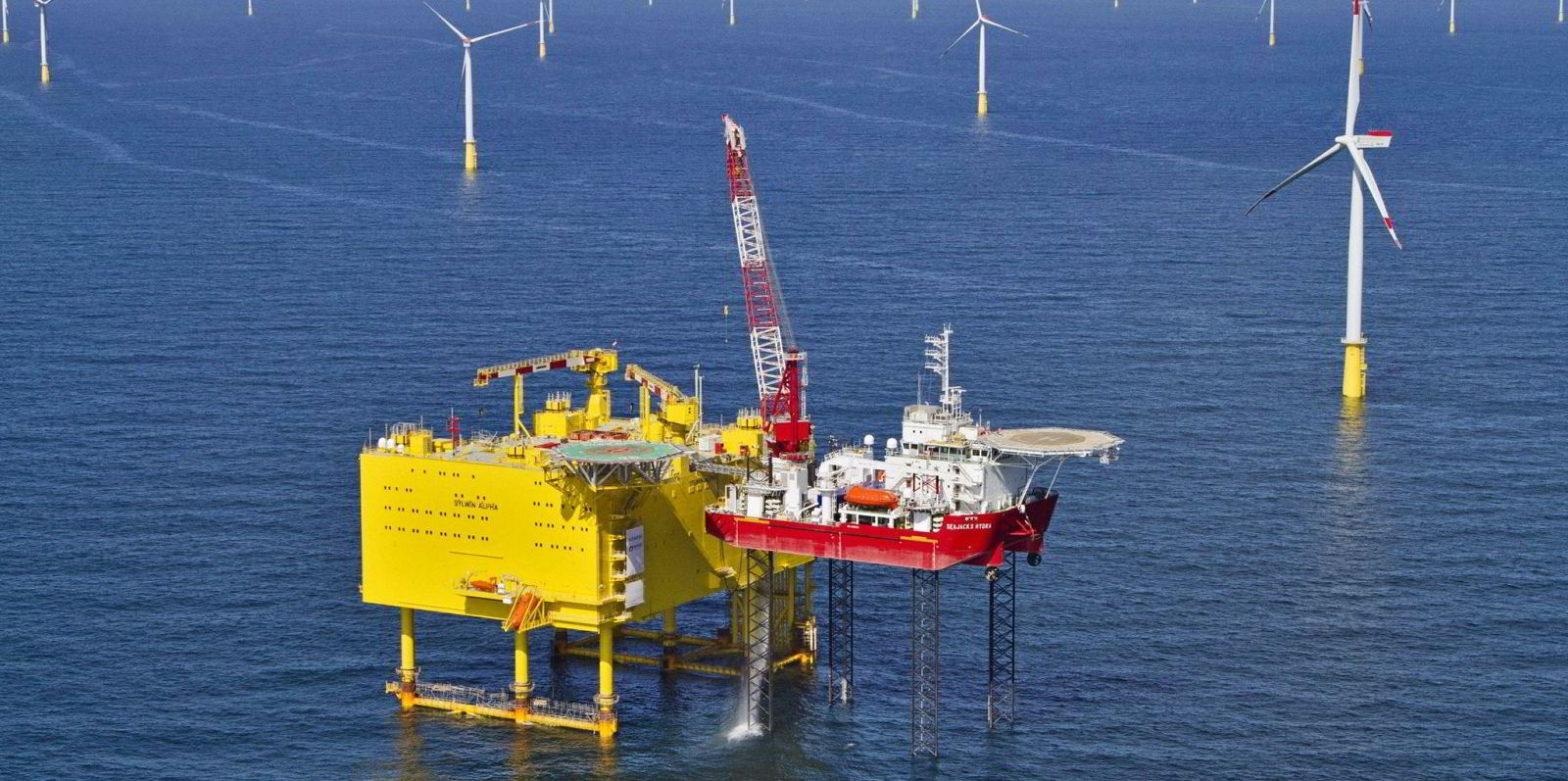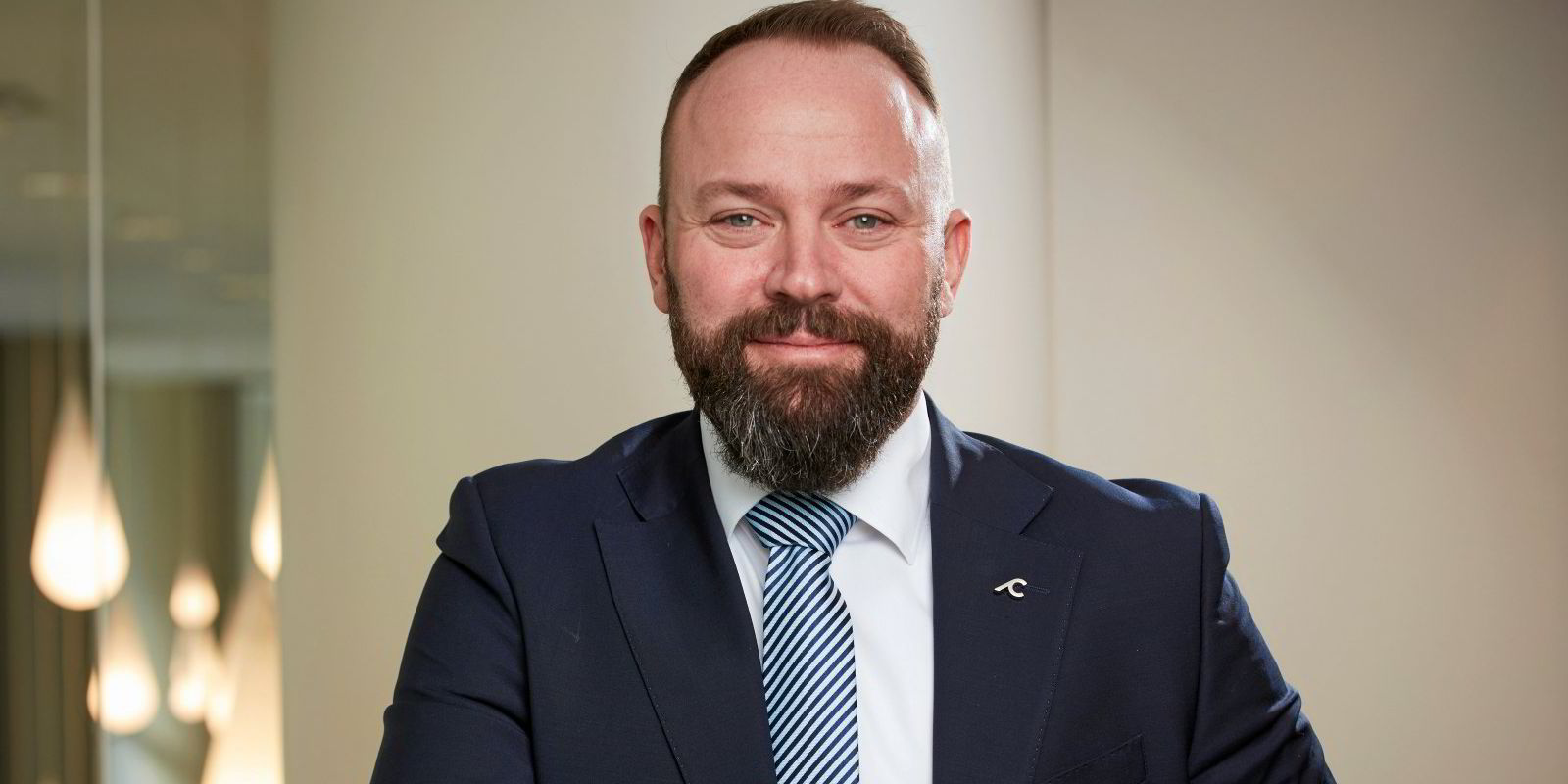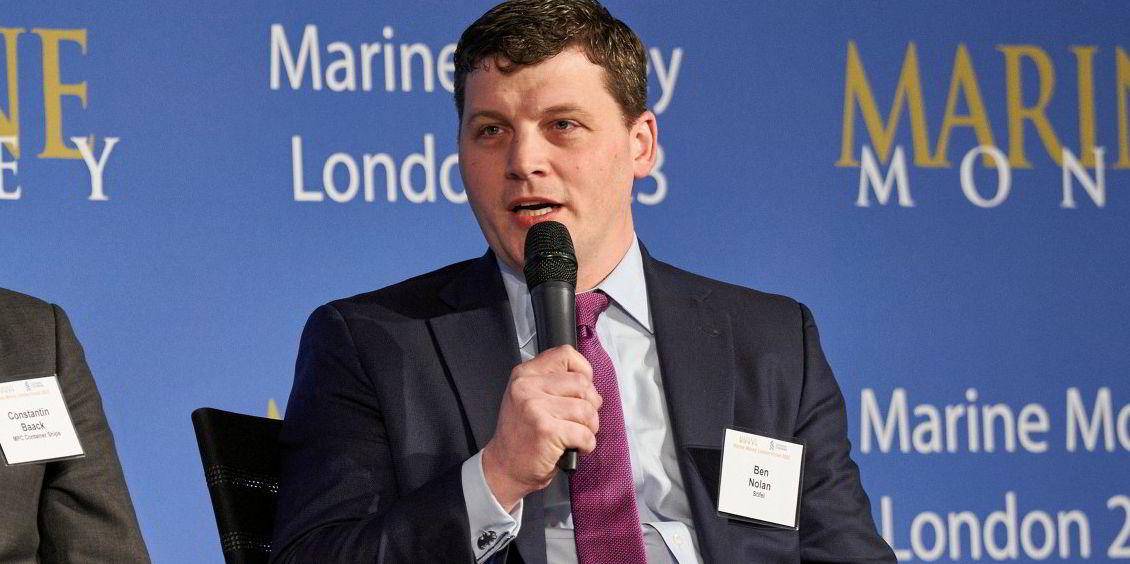Eneti chief financial officer Hugh Baker tried mightily to contain his enthusiasm, but in the end he could not quite manage.
“The banks are really supportive of the offshore wind industry. They want to lend into wind,” said Baker, himself a former lender, during a panel appearance at the annual Marine Money Week conference kicked off in Manhattan.
“These banks want to support energy transition, a lot of them have a mandate to support energy transition. In terms of debt financing, I don’t want to use the word ‘plentiful’. … Well, actually it is plentiful. I’m going to use that word.”

Baker was egged on a bit by the man sitting next to him – Cadeler chief executive officer Mikkel Gleerup. Their close proximity was appropriate in that Eneti and Cadeler recently announced a $1.2bn all-stock merger that will leave Gleerup running the surviving company, to be called Cadeler.
And indeed Gleerup quickly added that he had no hesitation at all about the glut of financing at his disposal.
“We just completed a financing and we were doubly subscribed,” Gleerup said. “We had to cut the banks back 60%. Banks have approached us with mezzanine financing at a good price if they can get their name and logo on the vessels.
“Definitely, the banks are open. They’ve subscribed to the Poseidon Principles and they want to live up to them,” he said, referring to the green-lending protocols of global shipping lenders.
So if that was the wind farm vessel story as the annual finance conference opened to an offshore focus, the tale was a bit different for those dealing with the traditional oil-and-gas part of the equation.
Financing is not “plentiful,” it seems, even for a sector that has rebounded impressively from what had been dire loss-making day rates.
Moderating a subsequent panel, AMA Capital Partners banker Chris Weyers tried hard to get an essential question: why not? Are banks put off because so many offshore players descended into bankruptcy in recent years, or is it simply that they deal in dirty hydrocarbons in a world gone green?
The answer to that question, it emerged, is “yes”.
“We’ve seen a lot of banks head for the hills,” said JP Morgan investment banker Hunter Bollman. “Particularly European banks saying we are not going to support the oil and gas industry, full stop. I think if you once had 40 lenders in deep-sea drilling now maybe you have 15 or 20.”

However, Bollman quickly added this was not just a political exodus.
“I think the problem with the banking market is the sheer number of losses,” Bollman said, adding that lenders tend to have longer memories about such things than investors in high-yield bonds, who have helped some drillers get deals done.”
When banks have cooperated, they generally have sought highly structured, low-levered transactions that place them in superior security position to bondholders, he added.
Still, DNB’s head of ocean industries for North America, Evan Uhlick, said he has witnessed some moderation of bank thinking compared to December 2019, when environmental, social and governance (ESG) priorities were being pushed with “evangelical zeal”.
“It’s a much more mature and nuanced conversation now,” since global turmoil including Covid-19 and the Russia-Ukraine war fixed attention on energy security, he said.
“I think there’s greater understanding that this is not a short-term, flip a switch type of solution. We’re going to have to all play nice in the sandbox for now, both brown and green.”
Read more
- Eneti shares climb as investors digest details of merger with Cadeler
- Editor’s selection: World Bank wades in to carbon levy debate, Greeks after big tankers and wind farm shipping giant formed
- Cadeler’s Mikkel Gleerup ‘humbled’, ‘happy’ and ready to give his all in wake of Eneti merger
- ‘Good sense’: Cadeler and Eneti shareholder J Lauritzen backs merger
- Bosses eye savings of $116m per year from Cadeler and Eneti merger





